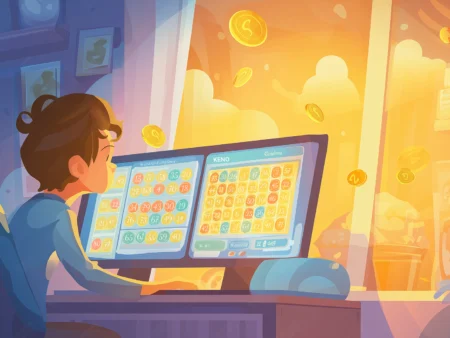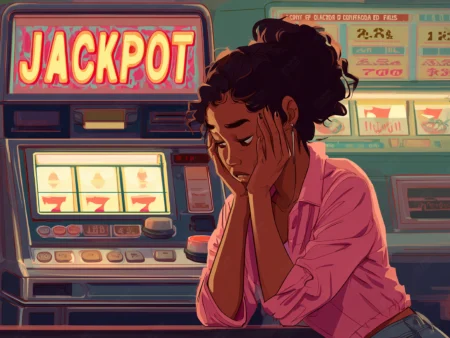Every decision you make in blackjack either protects your bankroll or chips away at it. You’ve been there, sitting on a 16, dealer shows a 10, and you freeze. Hit and bust? Stand and lose? That hesitation? It costs money.
Blackjack isn’t about intuition. It’s about math and edge. That’s where the blackjack chart comes in. It’s not just for beginners. It’s the go-to tool for players who actually care about playing the game right, whether you’re just getting into blackjack or clicking through hands at an online blackjack table.
This chart covers every possible hand matchup, hard totals, soft totals, and pairs, and gives you the statistically best move for each.
No guesswork. No second-guessing. Just fast, smart decisions that keep you in control.
We’ve built the ultimate version: color-coded, easy to scan, mobile-friendly, and downloadable. Whether you’re grinding through FTD offers, chasing comps, or trying to outplay the table, this chart gives you an edge that compounds over time.
Ready to play smarter? Download the chart or keep scrolling to master the most important blackjack decisions.
Table of contents
- What Is a Blackjack Chart (and Why It Still Matters)?
- The Ultimate Blackjack Strategy Chart
- How to Use This Blackjack Chart (Without Overthinking It)
- Rule Variations That Can Change the Chart
- Online Blackjack Strategy: What About RNG and Live Dealer Tables?
- Your Next Move: Download the Chart & Play at a Blackjack-Friendly Casino
What Is a Blackjack Chart (and Why It Still Matters)?
A blackjack chart is your cheat sheet, and it’s 100% legit. It tells you the optimal move in every hand scenario based on your cards and the dealer’s upcard.
Should you hit that 12 against a 3? Double on A-6 versus a 5? Split 9s against a 9? The chart lays out the statistically correct answer, no guessing, no tilt.
But this isn’t just a tool for rookies. Even experienced players use a blackjack strategy chart because the game is all about thin edges. Making the wrong move once or twice per session might not sting, but over hundreds of hands, it bleeds your ROI.
Why the Chart Works
Blackjack isn’t random chaos, it’s probability. And every hand has a mathematically optimal move, assuming you’re not counting cards. The chart is built on millions of simulated hands and takes into account:
- Your hand total (hard or soft)
- The dealer’s upcard
- The blackjack rules in play, like number of decks, whether the dealer hits soft 17, if doubling after split is allowed, and more
Ignore it, and you’re basically tipping the house with bad decisions.
Variations Matter
Not all blackjack games run on the same engine. That’s why multiple versions of the chart exist. Your best move can shift depending on the table rules.
For example:
- If the dealer hits on soft 17, you’ll often be more conservative with soft hands.
- If doubling after split (DAS) is allowed, certain pair splits become a lot stronger.
We’ve built our version for the most common online setup:
- Multi-deck
- Dealer stands on soft 17
- Double after split allowed
If you’re playing a variant with different rules, like single-deck blackjack or no DAS, adjust your plays accordingly. When in doubt, check the game’s help or rule section before jumping in.
The Ultimate Blackjack Strategy Chart
This is it, the blackjack chart serious players rely on.
It tells you exactly what to do in every situation, based on:
- Hard hands (no Ace, or Ace counted as 1)
- Soft hands (Ace counted as 11)
- Pairs (when to split, or not)
Built for the most common online rules, multi-deck, dealer stands on soft 17, double after split allowed, this chart is color-coded, mobile-optimized, and beginner-proof.
Download the printable blackjack strategy chart (PDF), no signup, no spam, just pure EV.

This is the chart experienced players stick to, not because it’s flashy, but because it’s consistent. Blackjack isn’t about being perfect. It’s about making +EV decisions every time and letting the math play out.
Tip: Bookmark this page or keep the PDF nearby. The fewer decisions you have to second-guess, the better you’ll perform under pressure.
How to Use This Blackjack Chart (Without Overthinking It)
The blackjack chart isn’t just a wall of letters, it’s a system. Think of it like Google Maps for your hand. You check your total, look at the dealer’s upcard, and the chart points you to the highest-EV move.
No second-guessing. No tilt. Just smart, calculated decisions.
Let’s break it down by hand type, because this is where most players lose value.
Hard Hands: The Classic Struggle
Hard hands are totals without an Ace, or where the Ace only counts as 1. These are the hands that test your nerves.
Example: 16 vs dealer’s 10
Feels like a trap, right? But the chart is clear: Hit.
Yes, you might bust, but the odds are still better than standing and praying.
It’s not about winning this hand. It’s about minimizing long-term losses.
Other smart hard hand plays:
- Hard 12 vs 2–3 → Hit
- Hard 11 → Double down (if rules allow)
Soft Hands: Your Secret Weapon
Soft hands include an Ace counted as 11, more flexibility, more opportunity. But a lot of players misuse them.
Example: A-6 vs dealer’s 4
You’ve technically got 17, but you’re not stuck.
Chart says: Double.
You’ve got room to grow, and the dealer is in a weak position, take advantage.
Other high-EV soft hand moves:
- A-7 vs 9 → Hit
- A-3 vs 5 → Double if allowed
Tactical edge: Use soft hands to get aggressive when the dealer shows 4, 5, or 6. These are high-bust cards, lean in and apply pressure.
Pairs: When to Split in Blackjack (and When Not To)
Here’s where even decent players bleed EV, especially online. Don’t split just because you can. Split when it improves your odds.
Example: Pair of 8s vs dealer’s 10
You’re sitting on a rough 16. But split them, and now you’ve got two chances to beat the dealer.
Chart says: Always split.
Memorize these:
- Always split: Aces and 8s
- Never split: 10s (20 is too strong to break up)
- Split 6s vs dealer 2–6 → Hit against 7+
Quick rule: If you only remember one thing, 8s and Aces always split.
Mistakes in these spots don’t just cost you a hand, they wreck your win rate. Blackjack is a low-edge game. Deviate from the chart by even 5%, and you start flipping value back to the house.
Want to sharpen your long game? Check out our Blackjack Tips page for advanced plays, table selection advice, and mental game strategies.
Rule Variations That Can Change the Chart
Blackjack isn’t always blackjack. The core mechanics stay the same, but table rules can shift your edge dramatically. And that means your chart? It needs to flex too.
The blackjack chart we shared is built for the most common online setup:
- 6–8 decks
- Dealer stands on soft 17
- Double after split (DAS) allowed
- No re-splitting Aces
But not every game follows that playbook. If you’re applying the same chart to every table without checking the rules, you’re leaking EV hand after hand.
Here’s where players get caught, and how to adapt.
Dealer Hits Soft 17 (H17)
This rule gives the house a slight edge boost, especially against your soft hands.
How it changes your strategy:
- Some “stand” hands now become hit or double
- You’ll be more cautious with soft 18 (A-7) vs dealer 2 or 7, consider hitting instead of standing
Pro Tip: Always check the rules, most online games will state clearly: “Dealer hits/stands on soft 17.” If it’s H17, tighten up your soft hand aggression.
Double After Split (DAS)
DAS is a player-friendly rule that lets you double down on a hand formed after splitting (like splitting 8s, then doubling on 11 after drawing a 3).
If DAS is allowed:
- You can be more aggressive with pairs, especially 2s, 3s, and 6s
- Some marginal splits become profitable plays
If DAS isn’t allowed:
- Certain splits (like 4s or 6s) lose value, you’ll often be better off hitting
- Recheck your decisions any time the dealer shows a high upcard
Number of Decks
Fewer decks = better odds. Why? It slightly improves your chances of hitting blackjacks and makes counting more viable (if that’s your game).
Single-deck games often:
- Favor more aggressive doubles
- Make card counting a legit option (though rare online)
But most online blackjack uses multi-deck shoes, to protect the house and eliminate advanced edge play.
Surrender Rules
Some games let you surrender and lose only half your bet, instead of playing out a hopeless hand.
When it matters most:
- Holding 16 vs 10
- Holding 15 vs Ace or 10 in some games
This move isn’t included in your basic chart, but it can save you chips when used correctly.
Final Thought
Even the best blackjack strategy chart won’t save you if you’re playing under the wrong assumptions.
Always check the rules before you play. Whether it’s DAS, H17, or deck count, tiny rule tweaks shift the edge, and smart players adjust accordingly.
Online Blackjack Strategy: What About RNG and Live Dealer Tables?
So… does this blackjack chart still work when you’re playing online?
Absolutely, and in many ways, it works even better. Why? Because there’s no pressure. No tablemates rushing your move. No dealer side-eyeing your hesitation. You can breathe, consult the chart, and play the exact right move, every single hand.
But here’s the kicker: not all online blackjack games are created equal.
Let’s break down where the chart shines, and where you need to double-check the rules.
RNG Blackjack Games
These are your standard digital tables, cards are dealt by software, outcomes driven by a random number generator.
Pros:
- Super fast hands
- Low minimum bets (great for grinders)
- Perfect for practicing chart play without distractions
Watch out for:
- Auto reshuffle after every hand, no card counting possible
- Rule variations tucked deep in the game info, like H17 or restricted doubles
Pro tip: Always open the rule panel before you play. Some RNG games quietly stack the odds against you, make sure the chart you’re using matches the table’s conditions.
Live Dealer Blackjack
Live dealer games are the sweet spot for online strategy players. You’re playing real cards, dealt by real humans, streamed in real time.
Why it’s chart-friendly:
- More time between hands to make smart moves
- Game rules clearly displayed (DAS, H17, etc.)
- Full transparency, you see every shuffle and deal
Side bets, early payouts, and other “extras” might be tempting, but if you’re playing basic strategy, ignore the noise and focus on the main hand. That’s where the value is.
Bonus of Online Play: No Judgment, No Rush
Online blackjack gives you something rare: time to think. No side glances. No table talk. You can open your chart, take your time, and execute the highest-EV move without pressure.
That alone is worth serious EV over time.
New to online blackjack? Start with our How to Play Blackjack guide, it covers game types, payouts, and setup so you’re not walking in cold.
Already playing but want sharper decisions? Our Blackjack Tips article dives into next-level strategy that stacks on top of the chart.
Blackjack Chart FAQ
Not at all. It’s called basic strategy, and it’s 100% allowed, even expected.
Casinos know most players don’t stick to the chart… and that’s exactly how the house wins over time.
Using a blackjack chart just means you’re playing the smartest version of the game.
No rules broken. No eyebrows raised. Just better, statistically-backed decisions.
Absolutely, and honestly, you should.
Whether you’re at an RNG table or a live dealer stream, there’s no pressure. No dealer rush. No audience.
You can have the chart open next to you, make the right move, and stay sharp every hand.
Pro move: Download the blackjack strategy chart PDF and keep it on your phone or monitor. It’s the fastest path to edge play without memorizing every scenario.
No. The chart is built for the main game only, your hand versus the dealer’s upcard.
Side bets like Perfect Pairs, 21+3, or Hot 3 use completely different odds and are usually +EV for the casino, not you.
Sure, they can be fun. But if you’re here to play sharp, stick to the core game. That’s where the math favors you.
Unless you’re counting cards, no.
The chart exists because it’s statistically optimal over the long run. Going off-script because you “feel lucky” might work once… but over hundreds of hands, it’ll drain your bankroll.
The only time you should adjust?
When the table uses different rules than the chart was built for (like dealer hits soft 17 or no DAS).
In that case, tweak your plays or find a table that matches your strategy setup
Your Next Move: Download the Chart & Play at a Blackjack-Friendly Casino
You’ve got the tools. You know how to use them.
Now it’s time to play like it.
Whether you’re running free demos or chasing real-money FTDs, this chart is your edge, and smart players use it every single session.
Download the Blackjack Chart PDF, keep it open or print it for instant strategy at your side
Play Blackjack at Top-Rated Casinos, tested platforms, trusted payouts, player-first rules
Read More Blackjack Strategy Guides, level up your play beyond the basics
Where to play? We’ve already done the homework.
Our top blackjack-friendly casinos offer:
- Classic and live dealer blackjack tables
- Player-favored rules (DAS, stand on soft 17, etc.)
- Fast cashouts and fair, transparent T&Cs
Don’t just play, play with purpose.
Your bankroll will thank you.












































